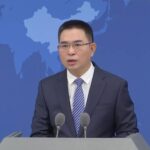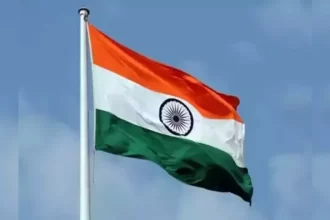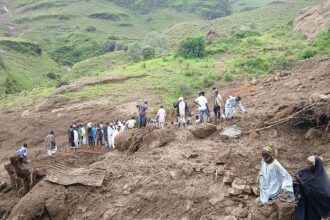Lovise Aalen, Chr. Michelsen Institute and Marjoke Oosterom, Institute of Development Studies
Africa has the world’s largest youth population. By 2030, 75% of the African population will be under the age of 35. The number of young Africans aged 15-24 is projected to reach 500 million in 2080.
While population dynamics vary across the continent, most sub-Saharan countries have a median age below 19. Niger is the youngest country in the world with a median age of 14.5, while South Africa, Seychelles, Tunisia and Algeria have median ages above 27.
These demographics are a potential force for growth. However, the potential of Africa’s demographic dividend has been overshadowed by concerns among governments and international donors about the relationship between large youth populations, unemployment rates and political instability.
Many countries with large youth populations and high rates of youth unemployment and under-employment remain peaceful. But the dominant policy narrative is that unemployed youth pose a threat to stability.
Further, the role of youth in popular protest – such as in Sudan in 2019 – has created high expectations about their role in countering autocratic governments and contributing to democracy.
As political scientists and sociologists, we’re interested in understanding the interaction between youth and autocratic regimes – especially as elected autocracies are taking hold in Africa.
Electoral autocracies are regimes elected into power using authoritarian strategies. These include manipulation of elections and repression of the opposition, independent media and civil society.
Our research focuses on the interactions between youth and regimes in Ethiopia, Mozambique, Uganda and Zimbabwe. All are cases of electoral autocracies.
These regimes are aware of their large youth populations and are sometimes challenged by them. Uganda’s Bobi Wine, a popular musician turned presidential candidate, is one example.
ALSO READ: An African history of cannabis offers fascinating and heartbreaking insights – an expert explains
The four countries in our study have also been through civil wars, where the victorious armed groups have taken power and stayed in power since the end of the war. This has created a particular set of dynamics between the ageing rebel governments and the youth majorities.
In autocratic contexts like these ones, efforts to empower youth can easily be manipulated to serve the interests of the regime. Some young people may decide to play the game and take up opportunities offered by regime actors. Others might resist them. Some take up the opportunities, hoping it serves their own and not the regime’s interests. Still, this might reproduce forms of patronage.
All of this matters because the future of democracy is at stake, and using state-led opportunities might contribute to authoritarian renewal.
Our research teams in each country studied the range of policies that governments put in place to “cater” for the youth. They included loans for young entrepreneurs, and setting up youth councils and youth quotas in political institutions.
We found that youth-targeted strategies – largely aimed at promoting employment and political participation – are part of the authoritarian rule book in all four countries we studied. Employment and entrepreneurship schemes were open to abuse through ruling party patronage networks and channelled to regime supporters.
ALSO READ: South Africa intercepts buses carrying more than 400 unaccompanied children from Zimbabwe
Not saving democracy
Our research found that young people in Ethiopia, Mozambique, Uganda and Zimbabwe felt aggrieved about these opportunities being channelled to regime supporters. They also noted the lack of opportunities to have a meaningful voice. Institutions that were established to enable youth participation were co-opted and lacked independence from governments.
Some young people express their grievances through pro-democracy protests – like in Mozambique in October 2023. But overall, Africa’s youth are not saving democracy.
Neither are they countering the deepening trend of autocratisation on the continent, where incumbent governments have increasingly concentrated power in the hands of the executive. Our research has confirmed this in Zimbabwe, Mozambique, Ethiopia and Uganda.
Country case studies
In Zimbabwe, Zanu-PF has been in power since the country’s independence in 1980. The ruling party and many of its now ageing leaders use their history of having been part of the liberation war in the 1970s to retain their hold on power.
They do so by creating narratives around the country’s liberation history and patriotism, and accuse the “born-free” generation (those born after independence) of betraying the liberation war. This delegitimises any discontent young people may feel. Zanu-PF targets young people among its wider repertoire of strategies to maintain power.
In Mozambique, the ruling party Frelimo has won every election since 1992. The party has concentrated power and resources in the hands of the political elite. The youth continue to be under-represented and have serious challenges in accessing resources. This, in addition to other conflict dynamics, contributed to an insurgency in the northern region of Cabo Delgado from 2017. It’s led by the radical religious group locally called Al-Shabaab, or sometimes “machababo” (the youth).
Youth-dominated protests in Ethiopia contributed to the 2018 fall of the ruling party that had been in power since 1991. They also led to the coming to power of Abiy Ahmed that year.
Mobilisation among the youth has since been silenced. Only loyalists get access to job creation schemes. There has also been a militarising of youth-dominated ethnic movements. This was seen, for instance, with the Fano Amhara group in the war in Tigray in 2020-2022.
Uganda was a pioneer in institutionalising youth participation in decision-making. Youth engagement in political structures is considered to be a tool for government control. We found that young politicians felt that this flawed system of representation provided opportunities for mobilising both against and in favour of the current regime. Young candidates running for one of the youth quota seats in parliament, for instance, can’t easily evade ruling party patronage.
ALSO WATCH: Protests erupt in Kinshasa as opposition challenges election results in the DRC
Way forward
Young Africans are diverse. However, they have often been characterised as either violent or as changemakers and peace activists. These characterisations represent opposite ends of a spectrum.
Our research project engaged a diversity of young people positioned and constantly moving across different parts of the spectrum. This has enhanced our understanding of how they navigate and respond to the ways their regimes seek to handle the youth population.
In our view, research and policy initiatives towards young people in authoritarian states must acknowledge that well-intended youth interventions may reproduce authoritarian politics when they are channelled to party loyalists.
Interventions that aim to promote job creation and youth empowerment should monitor how youth participants are selected and funds disbursed to avoid interference from partisan actors.
Lovise Aalen, Research Professor, Political Science, Chr. Michelsen Institute and Marjoke Oosterom, Research Fellow and Cluster Leader, Power and Popular Politics research cluster, Institute of Development Studies
*This article is republished from The Conversation under a Creative Commons license. Read the original article.













